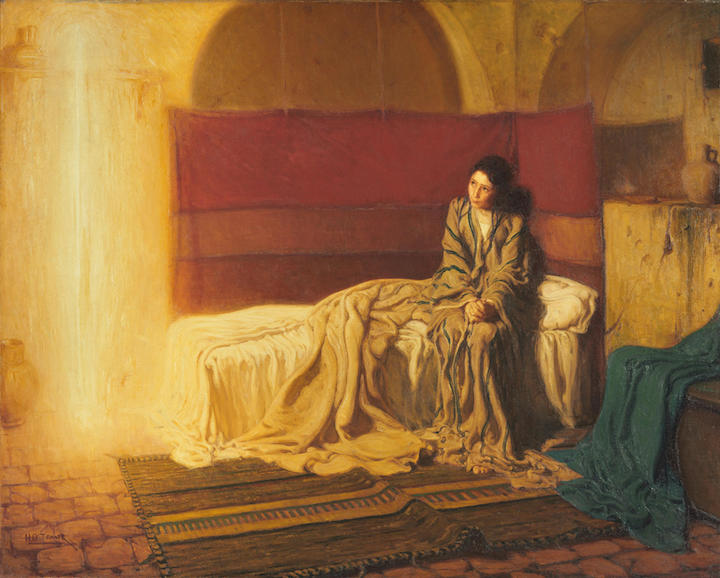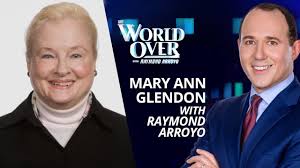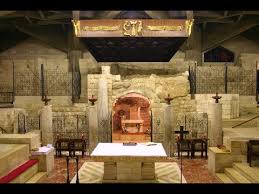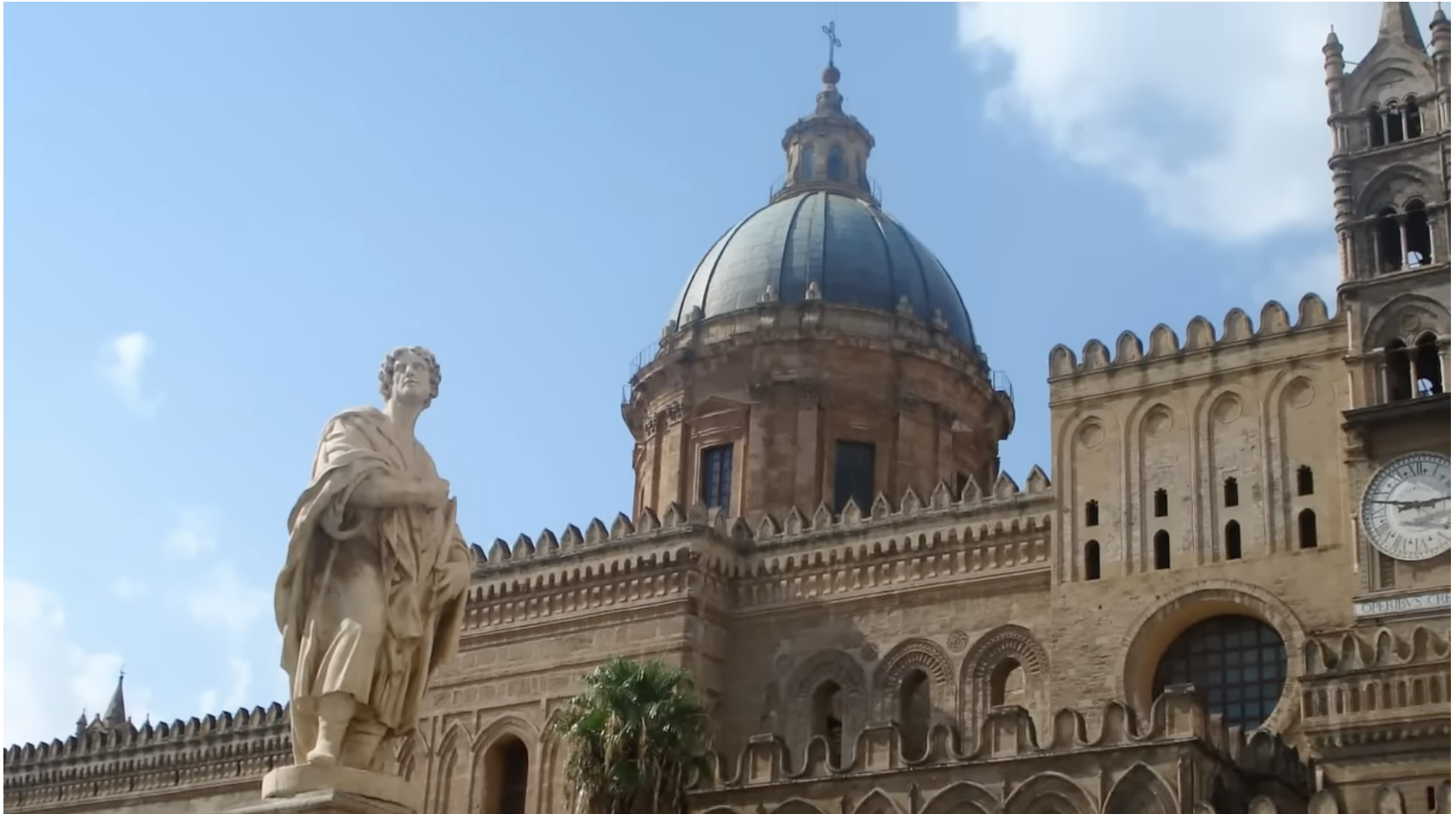When I was a Protestant seminarian, I thought I had good reasons not to venerate or pray to Mary. The mother of Jesus, however holy, was only so because of Christ, and thus any special honoring of her necessarily detracted from the unique, unparalleled honor due to our Lord. That’s certainly what the Reformers thought. As John Calvin writes in his Institutes of the Christian Religion, “one who takes refuge in the intercession of saints robs Christ of the honor of mediation.” It wasn’t until reading Manfred Hauke’s Introduction to Mariology that I realized the ecumenical stakes regarding Mary are quite a bit higher than avoiding “idolatrous worship.”
The early Reformers revolted against the Catholic Church preeminently over salvation. Whereas the Church taught that man’s cooperation was required for his own salvation, Luther, Calvin, Zwingli, among others, rejected this as undermining both the doctrines of grace and God’s sovereignty. Salvation must be wholly and entirely the work of Christ, they declared, asserting the Protestant doctrines of sola fide (faith alone) and sola gratia (grace alone). As Luther wrote in The Babylonian Captivity of the Church, “all works are measured before God by faith alone.”
Nevertheless, first-generation Reformers maintained a view of Mary that most contemporary Protestants would blanche at. Martin Luther continued to believe in the perpetual virginity of Mary and her immaculate conception. Calvin was willing to accept her perpetual virginity as at least possible and criticized other Protestants for rejecting the Catholic doctrine out of hand. One may speculate as to whether these Reformers’ retention of certain Catholic conceptions of Mary was motivated more by residue from their own upbringing or their reading of Scripture.
Over time, Our Lady’s star dimmed among Protestants, to the point that any honor of her seemed to smack of “Romanism.” That was certainly the brand of Protestantism in which I was educated as an evangelical and later as a Calvinist seminary student. Veneration of Mary, or any of the saints for that matter, obscured the exclusive worship and honor due to Christ alone (though, ironically, reverence for Reformers like Luther and Calvin could be quite effusive).
The modern “Neo-orthodox” Reformed theologian Karl Barth, however, offered a helpful articulation on Protestant suspicions of Marian veneration. Barth writes in Church Dogmatics:
Marian dogma is neither more nor less than the critical, central normative dogma of the Roman Catholic Church, the dogma from the standpoint of which all their important positions are to be regarded and by which they stand or fall. The “mother of god” of Roman Catholic Marian dogma is quite simply the principle, type and the essence of the human creature cooperating servant-like (ministerialiter) in its own redemption on the basis of prevenient grace, and to that extent the principle, type and the essence of the Church.
This is a pretty remarkable claim by Barth. Granted, Catholic theologians and clergy would disagree with his first description of Catholicism, instead placing the Incarnation and the Resurrection as the centerpieces of Catholic dogma. But there are some valuable (if incomplete) insights in Barth’s latter observation about Mary as she relates to soteriology.

God’s providential plan required Mary’s fiat. At the Annunciation, Mary’s “yes” is required – and is given: “Behold, I am the handmaid of the Lord; let it be to me according to your word.” (Luke 1:38) Hauke explains: “Mary, virgin Mother of the Savior, is closely united with the work of salvation. God made the Incarnation depend on the ‘yes’ of this woman, who deeply becomes part of the mystery of the Covenant.” Without Mary’s consent, there is no messiah.
In Mary, we also see a perfect model for ourselves. We too are chosen by God, manifested either through infant baptism, or through a later recognition that Christ is calling us unto Himself and His Church. Yet our cooperation is required. We can reject the baptismal promises made by our parents on our behalf. We can spurn His gracious overtures later in our lives, through willful ignorance and explicit disobedience. Even for the faithful this battle must be fought each day, as new temptations and trials present themselves.
Christ our Lord declared that our failure to obey Him and fulfill our calling as Christians can result in eternal condemnation. (Matthew 25:1-46) St. Paul teaches much the same: ‘Working together with him, then, we entreat you not to accept the grace of God in vain.” (2 Corinthians 6:1). Of course, this participation in our own salvation is not accomplished solely through willpower as the heretical Pelagians taught, but by God’s grace operative at the beginning, middle, and end of all our actions.
Nevertheless, Barth is correct in describing Catholic teaching as upholding Mary as the “type and the essence of the human creature” cooperating in his own redemption. Catholics aim to imitate Mary in being entirely submissive to the divine will. Hauke explains: “Mary is like a focal point in which the central truths of the Catholic faith can be seen.”
This clarifies the gradual Protestant repudiation of Marian dogmas. Inasmuch as Mariology illuminates human collaboration in our salvation, it violates Protestant principles of sola fide (“by faith alone”) and sola gratia (“by grace alone”). Mariology becomes, in Barth’s words, “a tumor, i.e., a diseased construct of theological thought. Tumors must be excised.” For Protestantism, Marian devotion is not merely a matter of idolatrous distraction from worship of God. It vitiates the salvific economy.
Mary’s witness, as the Church teaches, reminds us that our wills are not so deadened by sin that we require irresistible grace (another Reformed doctrine), but remain sufficiently intact that we are truly culpable for responding in faith and love to the overtures of divine grace. For Protestants, Marian dogma is not simply a distraction, but an attack on the very heart of Protestantism, and thus a serious obstacle for conversions.
But as I discovered in my own conversion, Mary – whom many Catholics prayed to on my behalf – is instead a great remover of obstacles.
*Image: The Annunciation by Henry Ossawa Tanner, 1898 [Philadelphia Museum of Art]
You may also enjoy:
Robert Royal’s In Praise of Popular Catholicism
Howard Kainz’ Queen of Angels














